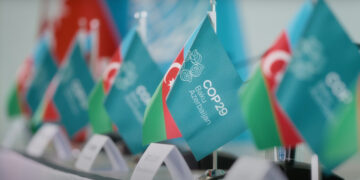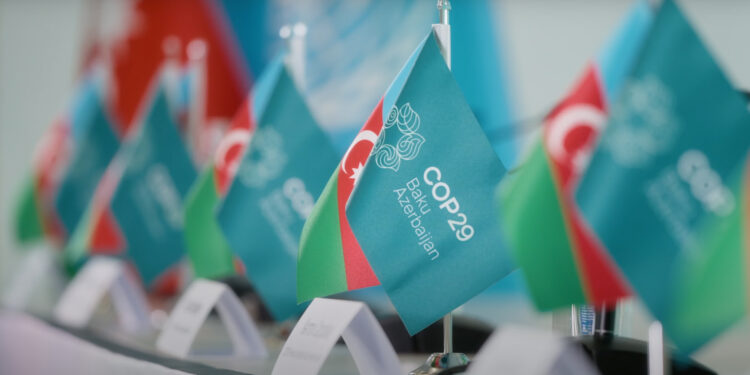By Lucy Adautin
With under two months to go before the COP29 United Nations Climate Summit, Azerbaijan’s leadership unveiled its goals for the event on Tuesday, as nations continue grappling with raising ambition for a new climate financing target.
The primary objective of the November summit is for countries to agree on a new annual funding target from wealthy nations to help developing countries address climate change. Many developing nations argue they cannot accelerate emission reduction efforts without first securing increased financial support to make the necessary investments.
As agreement on the financing target remains elusive, the COP29 presidency introduced over a dozen side initiatives this week, aimed at boosting ambition without requiring full party negotiations, which often slow progress. These initiatives include; new funds, pledges, and declarations that national governments can adopt independently.
Countries remaining far from agreement on the financing goal, the COP29 presidency this week, outlined more than a dozen side initiatives that could raise ambitions, but do not require party negotiation and building consensus which can hamper progress. These take the form of new funds, pledges, and declarations that national governments can adopt.
Notably, this includes, a fund with voluntary contributions from fossil fuel producing countries and companies for the public and private sectors working on climate issues, as well as grants that can be doled out to assist with climate-fuelled natural disasters in developing countries.
Such side agendas use, “the convening power of COP and the hosts’ respective national capabilities to form coalitions and drive progress,” said Mukhtar Babayev, who holds the rotating COP presidency, in a letter to all parties and stakeholders.
Over 120 countries pledged at last year’s COP28 summit in Dubai, for example, to triple renewable energy capacity by 2030.
The COP29 presidency aims to rally support for a pledge to boost global energy storage capacity to six times the 2022 levels, targeting 1,500 gigawatts by 2030. This effort includes a commitment to expand energy grids, with plans to add or upgrade over 80 million km (50 million miles) by 2040.
Azerbaijan’s Minister of Ecology and Natural Resources, Babayev, stated that this agenda would “raise ambition by uniting stakeholders around shared principles and goals. We aim to tackle critical issues and underscore ongoing priorities.”
Another initiative calls for the creation of a global market for clean hydrogen, addressing challenges related to regulation, technology, financing, and standardization.
COP29 leaders are also advocating for a “COP Truce” to emphasize the significance of both peace and climate action. Despite existing climate commitments, carbon dioxide emissions from fossil fuels reached a record high last year, and the world has just experienced its hottest summer on record, with temperatures continuing to rise.




































